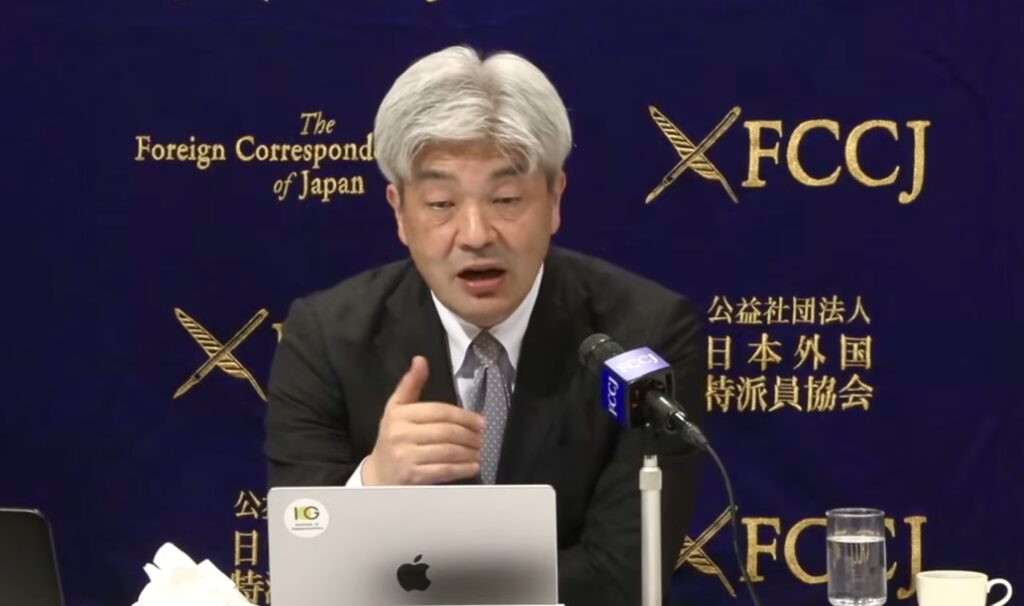
- ARAB NEWS
- 15 Jul 2025

TOKYO: US President Donald Trump is basing his economic program – mainly tariffs – on overconfidence in the power of the United States, according to SUZUKI Kazuto, a professor at the prestigious University of Tokyo and Director of the Institute of Geoeconomics.
Speaking at the Foreign Correspondents’ Club of Japan, Professor Suzuki said the United States’ capability for manufacturing is very limited, which could limit the US president’s options.
“I think Trump’s demand for the return of investment or the return of manufacturing in the United States is probably unrealistic,” he said. “I think if he is trying to push that idea, then it will make it very difficult for the American consumer to buy products produced in the United States. Simply put, at certain points Trump has to concede. Trump has to concede on the enormous size of tariffs.”
Suzuki sees the battle over tariffs as an endurance test to see who will break first, but he doesn’t see a winner quite yet.
“It’s very hard to predict,” he said. “But I think there are a lot of vulnerabilities that Trump must face – not only the approval rate, but also the relationship with Congress facing the midterm election. I think the Japanese strategy is to exploit these vulnerabilities and to make sure that the time is on our side and make sure that we’ll be able to move in our favor in this negotiation.”
Japan also has an election in the summer – for the House of Councilors – and Suzuki believes that Japanese Prime Minister ISHIBA Shigeru will try to play out the negotiations with Trump as long as possible to avoid any negative impact from the tariffs. He also believes that Japan needs to distance itself from relying on the United States.
“I think Japan needs to reduce the dependency on exports to the US market and try to find the other markets,” he said. “This is an opportunity for Japanese companies to reconsider and restructure their productivities and also find a different network of supply chains for the sake of reducing the risk from Trump’s unpredictability.”